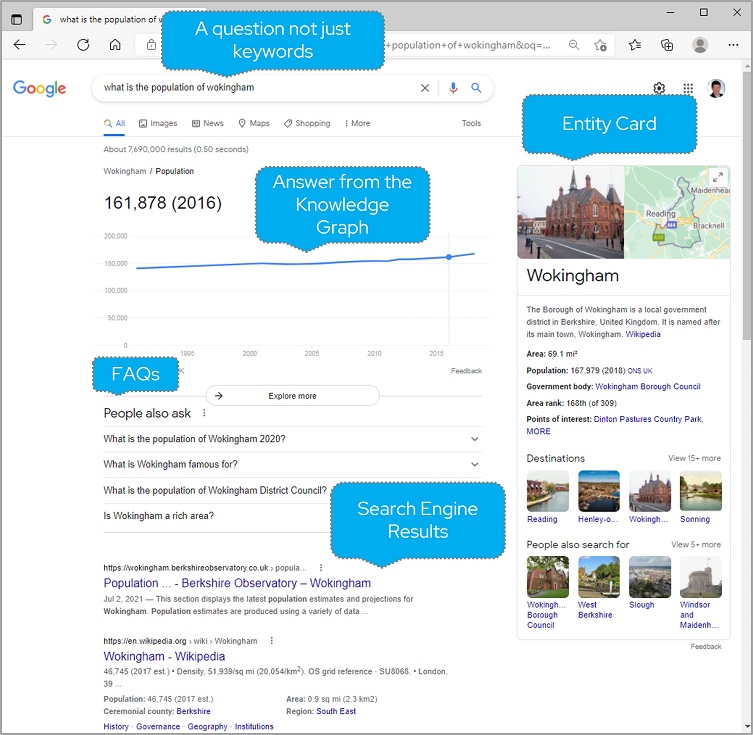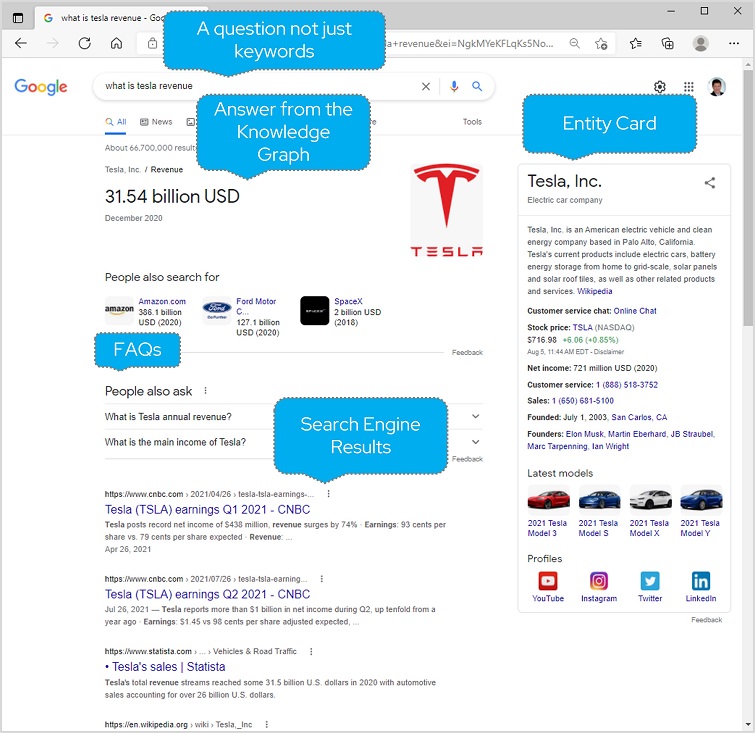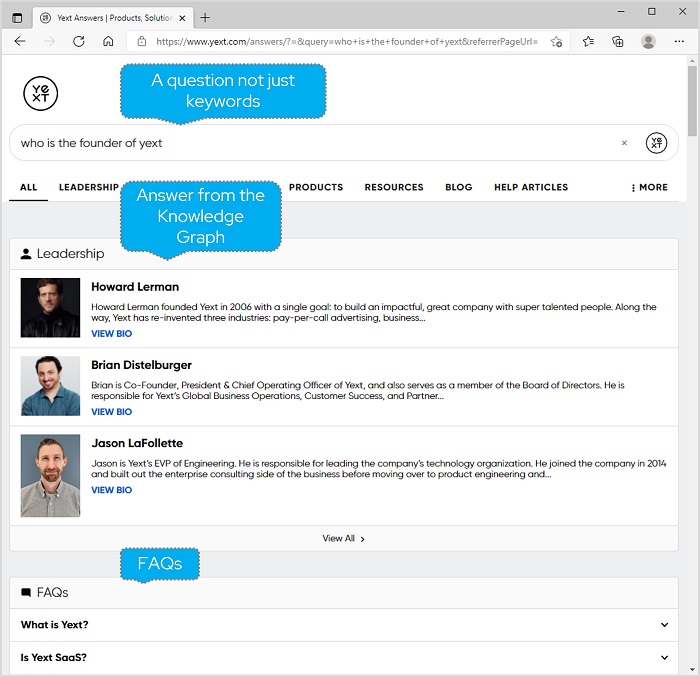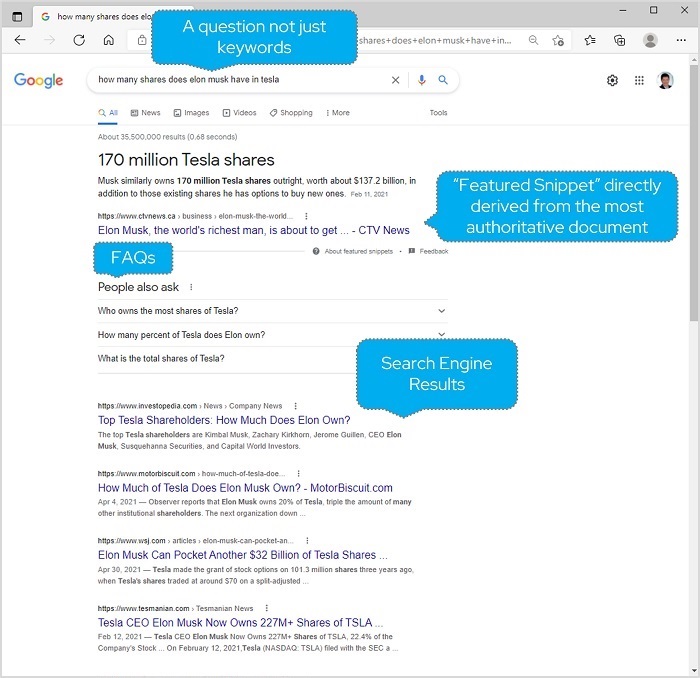Question Answering Systems deliver the answers users expect from their search bar.
Expectations of search are changing rapidly. Accustomed to their experience with public search engines, users are not longer content with keyword search. They are typing full natural language questions into search bars, expecting answers. This defines the evolution of the simple search bar into Question Answering systems.
Until recently, users generally accepted the limitations of search software and were comfortable turning their questions into ‘Key Words’ to help these engines retrieve the best results. Unfortunately, by translating questions into key words, we lose much of the context of a query that might help a truly intelligent system understand what the person is looking for. The question and the context are often lost in the translation.




In the last few years, public search engines like Google, Bing and Yext have introduced technologies to their search stack to better understand natural language queries.
This helps them better identify user intent based on all the words typed, as well as other information gleaned from user profiles and their historical behavior. In the process, the user experience on these public search engines has improved significantly. As a result, users now expect search engines embedded in websites and enterprise applications to behave the same way, understanding their language and providing highly accurate and contextualized answers rather than simply a result list for them to comb through.
The professionals at Pureinsights help customers add sophisticated Question Answering capabilities to their enterprise search applications.
We do this by emulating the designs of the top public search solutions mentioned above.
By adding a Knowledge Graph and a Natural Language Processing layer to the existing search stack, most search applications can be enhanced to add Answer Cards and Knowledge Cards to the search experience. At the same time, by fully processing, analyzing and enhancing the content as it is indexed, we can access and present the more granular answers users are seeking. This shortens the time to finding facts of importance and saves users’ time wading through pages of results sets to find critical information. Below are few examples of Google and Bing doing their thing:




Build your Question Answering System.
Users today don’t just want search results. They want answers. Contact us to learn more about how we can help you build applications built on Question Answering System concepts presented here. You can also learn more by checking out these reference materials: Google Knowledge Graph, Google Knowledge Card.